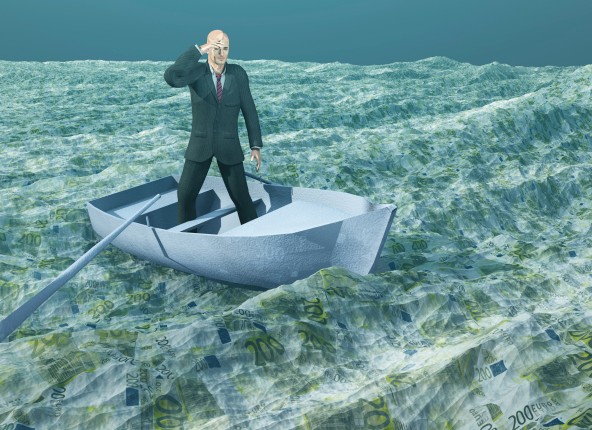The Importance of Having an Emergency Fund
 The number of Americans without any emergency savings is around 28 percent. Are you included in that number?
The number of Americans without any emergency savings is around 28 percent. Are you included in that number?
What is an emergency fund?
An emergency fund is money put aside for unexpected expenses such as a crisis or emergency. For instance, if you lose your job, your vehicle breaks down, or you have a huge amount of medical bills and you have no money elsewhere, you can draw on your emergency funds.
Why have an emergency fund?
Peace of mind is important in keeping stress levels to a minimum and getting a good night’s rest. Knowing you have money put aside for emergencies improves the quality of your life and often those around you. Being in control of your money as opposed to it controlling you is a precious commodity.
How much should I save in an emergency fund?
Ideally, it is best to aim for an amount equal to 3-6 months’ bills. That way, if you lose your job, you have the confirmation that you can survive for several months without worrying about finding funds for your rent, mortgage, or utilities. Obviously this means less pressure during the job hunting process—which is always a good thing.
What different types of emergency funds are there?
Generally, it is best to save the additional money to create an emergency fund in a savings account or money market. Look for a product with a fairly decent interest rate and immediate access. But there are other financial products that can serve as emergency funds.
 If you own your own home and you are lucky to have equity in it, consider taking out a Home Equity Line of Credit (HELOC). This is simply a loan against the equity in your property.
If you own your own home and you are lucky to have equity in it, consider taking out a Home Equity Line of Credit (HELOC). This is simply a loan against the equity in your property.
The benefit of this type of loan is that you only pay interest on the balance, which means no balance—no payment.
It is an ideal product to provide peace of mind due to the ability to draw upon the funds in an emergency. The funds can be used for a variety of emergency uses: medical and auto bills, and even mortgage payments.
A HELOC is an alternate emergency fund if you find it hard to put money aside.
You can actually use your HELOC funds for any expense: vacations, college degrees, auto loans, remodeling, etc. A word of caution: Think twice before charging expenses you cannot pay off that will lead to increased stress and financial hardship.
If you participate in a High Deductible Health Plan you can open a Health Savings Account (HSA).
Often, employers make contributions to these accounts on behalf of employees. Employees can also make pre-tax contributions to build up cash to create an emergency fund specifically for qualified medical bills. The IRS can audit the usage of funds in these accounts so ensure you retain your medical invoices and records. Full details of these accounts can be found in one of my earlier articles entitled “Balancing rising healthcare costs.”
What’s the best way of creating an emergency fund?
Consider having a portion of your paycheck automatically redirected to a savings account. Don’t even include the amount in your “money to spend.” Act as if it is already spent—which it is!
You may have heard the saying “pay yourself first”; this is the best example of following that rule.
What do I do if I use all of my emergency fund?
Life has its ups and downs and sooner or later you will have to draw on some or all of the funds you have put aside. Do not dismay! Just start over again saving as much as you can afford. It can be anything from $5 to $500 a month—any extra will help.
Consider contributing money from your tax return, house sale, or inheritance to your emergency fund. Bear in mind that saving for the future—just like following a budget—is a lifestyle change, not a quick fix. It takes time, patience, and discipline. Congratulate yourself when you achieve your goal and then share your newly found skill and knowledge with family and friends to create a strong, stable economy.
“Many Americans have no Emergency Fund,” Bankrate.com, Sheyna Steiner, June 25, 2012.
Related Posts
« The Perfect “Couples’ Getaway” in Costa Rica A “Re-Connect” Cruise for Couples »









